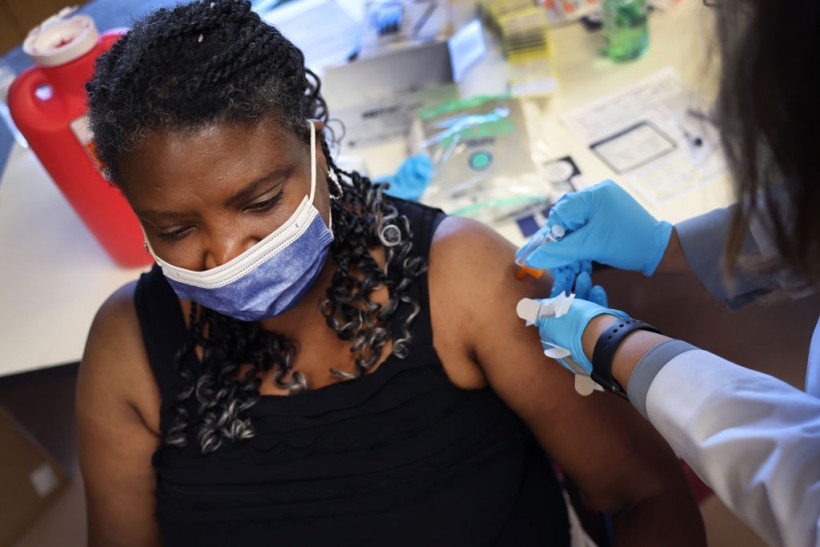
(Photo : Scott Olson/Getty Images)
Experts warn of further waves of infection caused by the new COVID-19 omicron subvariant.
The new omicron subvariant XBB.1.5 is rapidly spreading throughout the United States, and experts warn that it is extremely contagious.
Medical experts are becoming more concerned about this unique mutation as the onset of the colder season brings an increase in cases of COVID-19.
The latest COVID-19 Omicron subvariant has evolved to avoid immune system detection. According to medical experts, this strain is very infectious and resistant to natural immunity or immunizations.
According to Fox News medical contributor Dr. Marc Siegel, there are two subvariants at play: XBB and XBB.1.5.
Dr. Siegel, a professor of medicine at New York University Langone Medical Center, has said that XBB.1.5 is more infectious than previous strains. He said that its capacity to cling to a host is what makes it so contagious, per Fox News.
The expert noted that viruses always seek to spread to new hosts, and the greater "grip" it has, the easier it transfers "from cell to cell."
Siegel elaborated that each omicron form of XBB is "outcompeting its predecessor," making both of them extremely contagious.
Staggering Increase in Infections
Ashish Jha, the White House's COVID-19 response coordinator, took to Twitter on Wednesday to address concerns about the rapid spread of XBB.1.5.
He noted that the rapid rise of the COVID-19 Omicron subvariant from 4% to 40% in only a few weeks was staggering.
Jha suggested that XBB.1.5 is more infectious and immune-evasive than prior mutations, but he did not speculate on its potential harm.
"If you had an infection before July or your last vaccine was before the bivalent update in September, your protection against an XBB.1.5 infection is probably not that great," he remarked, per The Hill.
However, Jha said that antivirals targeting COVID-19, such as Paxlovid and Molnupiravir, should still be effective in treating infections.
Two antiviral drugs combined into one, Paxlovid, prevent the SARS-CoV-2 virus from replicating by inhibiting an enzyme it requires.
Most Communicable Subvariant
According to Maria Van Kerkhove, the technical director for COVID-19 at the World Health Organization, global health experts are concerned about the rapid spread of the subvariant in the northeastern United States.
XBB.1.5 is the most widespread COVID-19 Omicron subvariant in the United States, with the number of US COVID-19 cases tripling every two weeks.
Van Kerkhove told reporters at a news briefing on Wednesday in Geneva that it is the "most transmissible subvariant" that has been found yet.
The mutation in this particular omicron subvariant is responsible for the virus' enhanced ability to infect cells and spread rapidly.
Van Kerkhove speculated that it might be considerably more prevalent than in the 29 nations where it has already been found. As the cost of genetic sequencing drops throughout the globe, keeping track of Covid variations has gotten more challenging, she added.
The World Health Organization (WHO) still lacks data on the severity of XBB.1.5; nevertheless, according to Van Kerkhove, there is currently no evidence that it makes patients sicker than prior versions of omicron.
She said that the WHO's advisory panel monitoring COVID-19 variations is now publishing a risk evaluation of XBB.1.5, CNBC reported.
Van Kerkhove predicted that the virus would evolve as it spread. She added that the WHO is anticipating further global waves of infection and mortality.
Related Article: Further Details on China's Current COVID-19 Breakout Urged by Top WHO Advisers








